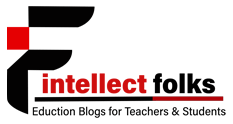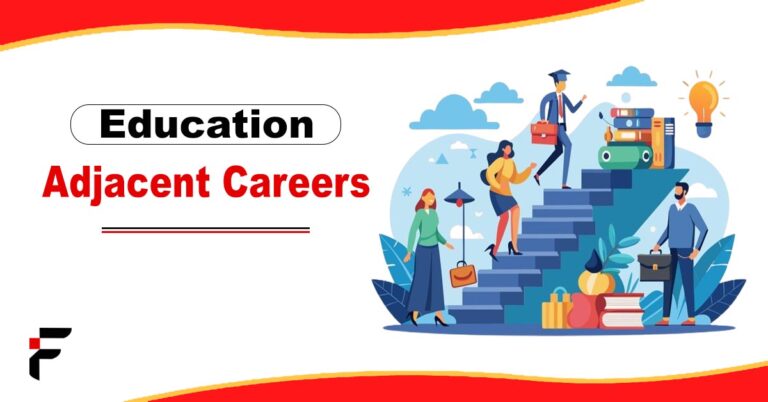There are many Education-Adjacent career options to consider for those with a passion for education but who may want a career change from the traditional classroom setting. A background in teaching provides transferable skills that are valuable in various industries.
This article will explore alternative careers within and outside the education sector to allow professionals to utilize their teaching expertise while expanding their career paths.
Education-Adjacent Careers:
A career typically influenced by one’s education in short words is referred to as an Education-adjacent career. There are multiple careers one can achieve on the basis of education, he has received throughout the years.
Education-Adjacent Careers Within the Education Sector
Education-adjacent careers in educational sectors perform two main functions. These are detailed in the below section.
Administrator/Coordinator
Educators wanting career development can explore administrative positions like assistant principal, curriculum coordinator, department chair or program director roles. These involve leadership responsibilities like scheduling, budgeting, staff management and strategic planning rather than direct classroom instruction.
Administration utilizes event planning, communication, and organizational abilities while allowing for flexibility. Administrative credentials or a master’s degree may be required for some roles.
Tutor/Teacher Trainer
Private tutoring companies, community colleges, and virtual schools hire tutors to provide one-on-one or small-group academic support. Tutoring offers schedule flexibility while continuing to impart knowledge.
Teacher trainers conduct professional development workshops to share best practices with current educators. They design curricula and train new teachers. Both roles let experienced teachers share expertise on a different scale.
Education-Adjacent Careers Outside the Education Sector
Outside the educational sectors, education-adjacent careers are widely impacted in multiple fields.
Technical Writer
Technical writers create user guides, online help documentation, and product tutorials for software, devices, and services. They simplify complex information for easy understanding. Teaching experience combined with strong writing abilities is valuable in technical writing.
Many companies are fully remote, which provides a work-life balance. Technical writing roles exist at edtech firms, publishers, and more. An English or technical communications background helps.
User Experience (UX) Researcher
UX researchers study how people interact with and feel about products to improve the user experience. They conduct user testing, interviews and surveys to understand pain points. UX insights are then applied to iterative design.
They teach listening, observation, and adapting skills based on feedback, which transfer well to this human-centered career. UX research roles exist at ed-tech startups, agencies and large corporations.
Training Specialist
All companies require training employees to utilize new systems, software, or work processes. Training specialists design and deliver onboarding programs and ongoing professional development sessions.
The role involves understanding learning needs, developing custom curricula, facilitating engaging lessons, and evaluating effectiveness. It leverages expertise in content creation, instructional methods, and adapting to different learning styles.
Non-Profit Education Role
There are many fulfilling non-profit positions supporting education equity and advocacy. Roles include program manager for after-school initiatives, community outreach coordinator to promote early childhood literacy, or director leading policy and fundraising efforts.
Non-profits focus on improving access and outcomes. Prior teaching experience and project management skills qualify one for these impacts.
Freelance Educator
The rise of the gig economy has created opportunities for freelancing educators. Possibilities include developing online courses or micro-credentials, private tutoring/coaching, creating educational media/videos, blogging, contributing to edtech companies, and more. Freelancing allows monetizing expertise on a flexible schedule with control over clientele. It requires strong self-marketing but leverages existing skills while accommodating work-life preferences.
Education-Adjacent Careers in Corporate Training
Education-adjacent careers in corporate training involved in main roles like,
Corporate Training Manager
Larger companies invest heavily in training and developing their workforce. Corporate training managers design and implement onboarding programs and ongoing professional development curricula on soft skills, leadership, compliance and industry-specific topics.
They partner with subject matter experts to create custom content and facilitate sessions using varied modalities. A background in instructional design and adult learning principles is valuable for these career-track roles.
Technical Training Specialist
Technical training specialists focus on teaching employees how to use business software, systems, machinery, lab equipment or other required tools. They act as in-house subject experts, identifying knowledge gaps and creating tailored training interventions. Technical training specialists conduct product demonstrations and provide one-on-one support. Teaching transferable technical skills or processes is rewarding.
Sales Training Associate
Sales enablement teams at companies invest in custom training programs to onboard new hires, coach current salespeople on best practices and share industry knowledge. The sales training associates design role-specific curricula covering prospecting, negotiation, client management and using sales enablement technologies. They deliver dynamic sessions to geographically dispersed teams using virtual and blended modalities.
Education-Adjacent Careers in Informal Learning Spaces
Education-Adjacent careers in informal learning spaces are given below in detail.
Museum Educator
Museum educators bring learning to life through interactive exhibits, guided tours, workshops, lectures and programs. They develop multi-modal content leveraging artifacts to spark curiosity across all ages.
Museum education roles exist at science and children’s museums, zoos, aquariums, and botanical gardens. Creativity and passion for a subject are key. Educators ensure accessibility and enhance appreciation of culture/environment.
Library Program Coordinator
Libraries offer invaluable learning resources and are constantly expanding programming for all demographics. Coordinators plan events from storytimes to coding clubs to book clubs. They market initiatives, train volunteers, evaluate effectiveness and find community partnerships. Creativity and adaptability are assets. Librarians with teaching experience can contribute meaningfully to this role.
Virtual Tours Guide
As virtual and hybrid learning grows, platforms offering online field trips and virtual tours have emerged. Guides share their expertise live through video to virtually transport students anywhere. They describe exhibits, lead Q&As, and make learning memorable through storytelling.
Education-Adjacent Careers in Publishing
Publishing is the most used and important career in educational sectors – as education is mainly promoted through written content.
Educational Publisher
Educational publishers develop the Pre-K-12 curriculum and supplemental resources that schools adopt. Instructional designers and subject experts work directly with teachers to understand needs and create customized, standards-aligned print/digital materials.
They conduct market research and ensure high design quality/accessibility. Publishing leverages skills in content creation, project management and education trends.
Instructional Content Writer
Content writers craft lesson plans, activity guides, assessments and other materials for publishers, tech companies, assessment providers and more. They distil complex topics into easy-to-understand pieces appropriate for different grade levels.
Writers partner with SMEs, follow style guidelines and undergo rigorous editing/review processes. Freelancing is common. Writing education materials allows for the contribution of learning from behind the scenes.
Educational Content Editor
Content editors ensure high quality, consistency and alignment across instructional materials. They provide feedback, fact-check information, refine language for clarity and grade-appropriateness, and oversee production.
Editors work directly with SMEs and writers to iterate based on teacher/student usability testing. Meticulous editing skills combined with subject expertise are valuable assets in these roles.
Final Overview
Educators have abundant, fulfilling career opportunities beyond the traditional classroom. The options discussed above allow professionals to utilize expertise gained from teaching while expanding their impact and exploring new areas of interest.
Many roles are fully remote, with the potential for freelancing, providing greater work-life balance. Education-adjacent fields are a natural next step for those wanting to advance or diversify their career, with transferable skill sets in high demand.


